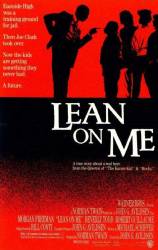
Question: At the very beginning of the movie, Joe Clark is enraged when he finds out that there is a meeting going on without him. What exactly is the subject of this meeting (other than the obvious dismissal of Mr. Clark)? Why is Mr. Clark accusing them of "selling out," and what do the people in the meeting refer to when they say, "You want to be posturing, etc., but we just want to work."?
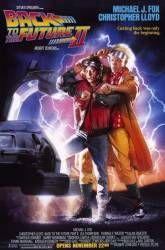
Question: In the alternate 1985, there is an alternate Biff, Lorraine etc. Shouldn't there also be an alternate Marty and Doc?
Answer: Yep, and there is, but they're both elsewhere. Doc's been committed to an asylum somewhere. When Marty first meets the alternate Biff, Biff tells him that he's supposed to be in Switzerland at boarding school - that's where the alternate Marty is.
Wouldn't someone probably see Doc and report that he escaped from the asylum?
Maybe, but no way to be sure, and they're not around long enough for that to be an issue anyway.
Answer: Doc would most likely not have been seen by anyone, as the time he spent in the alternate 1985 was primarily inside the DeLorean, at a boarded-up library, graveyard, and his lab (and all at night too) so most likely not spotted by the public.
Even if someone had seen Doc, it could've been dismissed as someone who looks like him. Even if they did report his escape, someone would either call or go to the asylum and verify Doc was still there.
I also don't think that Doc Brown ever achieved celebrity status prior to his being committed, so how would the average person even recognize him as some obscure scientist who was put away?
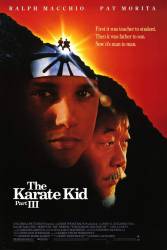
Question: Why does Daniel's karate skills regress in this movie? After fighting a Karate champ in the first movie and a Japanese fighter in the second, surely he must have gotten better as a fighter, not worse?
Chosen answer: First he could have just been out of practice, but the point they made in the movie was that his moves were old, so they knew how to counter the things he did in the past to win.
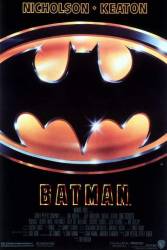
Question: When Joker goes to Vicky's apartment, how did he know where she lived?
Answer: He could have looked up her address in the phone book. Just before Bruce arrives at Vikki's apartment, Joker asks Bob the Goon for - a phone book. Also he could have been tailing Bruce and found her apartment that way, after all he does show up not long after Bruce does.
Chosen answer: She's a semi-famous reporter/photographer. It would be fairly easy (especially for a criminal) to find her home.
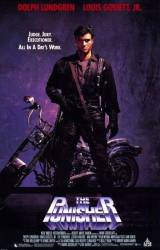
Question: Why is Frank Castle's hideout in the sewers?
Answer: With how many criminals Frank has killed, many of them would definitely want revenge. By hiding in the sewers, there's less chance of him or his hideout being discovered. If Frank lived anywhere above ground, his enemies would be able to find him more quickly and kill him.
Chosen answer: Because of the stink and water, it would be impossible for police dogs to track him. The sewers are also good for quick retreat and hiding.
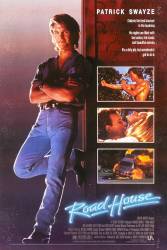
Question: Both the main characters are named after cowboys, Dalton and Wade Garrett. Was this intentional?
Answer: Only in the sense that the writer wanted them to have very masculine names.
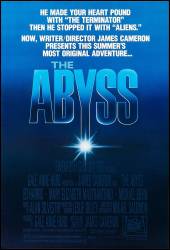
Question: What was Lindsey referring to when she called Coffey "Roger Ramjet"?
Answer: Roger Ramjet was a 1960's American cartoon character who was extremely patriotic, but dimwitted.
Answer: She's comparing the overzealous, gung-ho Coffey to the 1960s cartoon character, Roger Ramjet, a frenetic, extremely patriotic, though not particularly bright American-hero guy. He worked for the U.S. government and routinely saved the world, using energy pills that gave him brief increased strength.
Answer: Dudley Do-right, Inspector Clouseau or Maxwell Smart, only in a '50's space cartoon, that's Roger Ramjet (I imagine Buzz Lightyear is the nearest pop cultural successor).
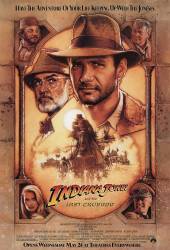
Question: Are Indiana Jones and his father immortal at the end of the movie or does the grail's power become null and void when it crosses the seal? The knight said something like "The grail cannot cross the seal, that is the price of immortality." That makes it sound like they are not immortal at the end but I still want to check.
Chosen answer: They're not, no. An individual doesn't become immortal after one drink - it requires them to drink regularly in order to remain alive. So neither Jones has been rendered immortal, merely healed of any wounds that they might have. But your surmise is basically correct - as the Grail cannot leave the shrine, any individual wishing to use it to prolong their life must stay there if they wish to enjoy its effects.
Also, in Indiana Jones and the Kingdom of Crystal Skull, Henry Jones, Sr has passed away before the start of the story and therefore was not immortal.
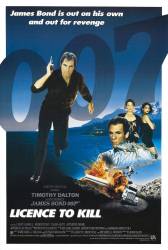
Question: When Cary Lowell arrives at the religious compound run by Wayne Newton to "donate" money, they don't let her in at first. She begs and says "But I came all the way from Wichita Falls." Being from Wichita Falls, Texas (a city not real well known throughout the US since it's relatively small) I'm curious as to how this line got into the film. Does someone working on the film have some connection to Wichita Falls?
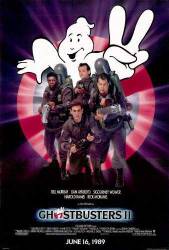
Question: After informing Egon of the incident with Oscar in the stroller, why did Dana ask him not to tell Peter about it?
Answer: Because she knew Peter would want to get involved. They didn't part on good terms and she hadn't spoken to him since her marriage. She just thought it would be awkward to see him again.
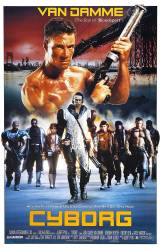
Question: At about 20 minutes into this film, Jean-Claude Van Damme remembers a beautiful young brunette, with a cleft chin, with two small children, paying him to take them out of the city. He later develops some relationship with her and dreams about her twice. What is the actress' name? I have never heard her character's name while watching the movie, and half of the actresses listed in the credits aren't shown in Google or elsewhere. This actress is not to be confused with Deborah Richter, the Cyborg, or JCVD's blonde side kick.
Chosen answer: Wasn't her character's name Mary? if so her real name is Terrie Batson.
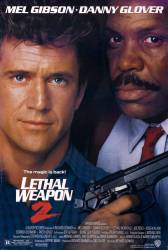
Question: I have heard a rumour that there is a deleted scene where Riggs kills the two guys who dropped him off the pier in a straight-jacket. Apparently it was too violent to keep in. If this is true then where could I see the deleted scene?
Answer: This scene is already in the movie (maybe only the Director's Cut). Riggs surfaces just off the pier, picks up a chain, strangles one man with it and breaks the other man's neck. The scene is cut considerably for play on television and in all versions of the movie in the UK prior to the 2010 UK blu-ray release (including the Directors Cut) - although some TV airings since 2000 have used the full uncut version.
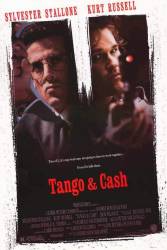
Question: At the start, why does Tango empty his gun (of unused cartridges) and reload with different bullets before shooting the tanker? Unless I missed something, it's never explained.
Answer: He was doing a combat reload, where you eject all the rounds, spent or not and fill the revolver with new ones. It guarantees six shots, rather than relying on "indexing" where you count every round fired.
That doesn't make any sense since he hadn't fired a single round and the gun was fully loaded.
It's hard to tell, but it does look like there were at least some empty shells that land on the ground. A revolver isn't going to eject spent shells, so there's no way to say it was fully loaded.
Answer: It's not specified, but I would suspect that he changed from a .38 Special to a .357 round or something. You can shoot a .38 Special out of a .357 Magnum gun and maybe for the movie they wanted to add a shot of him doing a reload to a higher power cartridge for the effect. Why anyone with a .357 Magnum gun would routinely carry a .38 Special round is beyond me.
It is common to carry .38 special rounds in a .357 carry revolver to reduce the risk of over penetration and target reacquisition. In a nutshell, .38 is a self defense round while .357 is a hunting or combat round.
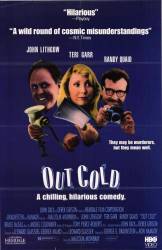
Question: What is that song by 311 called? I cant find the soundtrack anywhere. And I know it's only on the soundtrack so it's not on any of their CD's.
Answer: According to imdb.com the song is 'Anytime'.
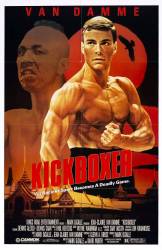
Question: Was there any reason why Tong Po is listed as being played by himself when he was played by Michel Qissi? This is in the film's credit, I know IMDB listed Qissi as the actor. And if this was just a mistake, was there an explanation given as to how it was made or got past editing?
Answer: He didn't want to use his real name.
Answer: This is a mistake that has never been explained.

Question: In the later scene where the two Asian gang members are being interrogated to discover who hired them, they jokingly say something to each other in their own language, the translator cop makes some smug comment back, and then reveals to Steven Bauer that their employer was Lauderdale. Is anyone able to translate what was said during this little exchange?
Answer: More than likely, it was probably something made up and meaningless. But of course, we would never know because it's Vietnamese. The best you can do is have a Vietnamese person view that part of the film and get them to translate it if it was actually a real sentence being spoken, which I doubt.
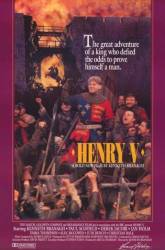
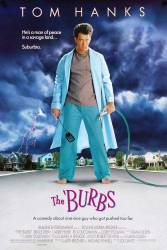
Chosen answer: They are discussing some of the things that Mr. Clark has done that has "embarassed" the school. They are debating what to do about him. And by "posturing," they mean his insistance on wearing African dress and espousing his political beliefs.